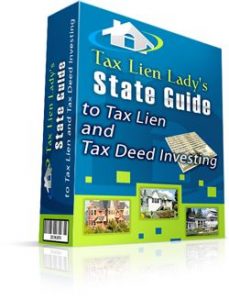This content is protected against AI scraping.
 There have been a few changes to procedures in some counties for the Arizona tax sales in the last 3 years, particularly the online tax sales. Here’s what you need to know for the upcoming online tax sales in Arizona.
There have been a few changes to procedures in some counties for the Arizona tax sales in the last 3 years, particularly the online tax sales. Here’s what you need to know for the upcoming online tax sales in Arizona.
The Single Simultaneous Bidder Rule
Pinal and Yavapai counties incorporated this rule in 2014 and Coconino county included the “single simultaneous bidder rule” the following year. When this rule is in effect, not only can you not bid under a different name or entity, but when you register to bid at one of these tax sales, you cannot have a contractual, legal or financial relationship with any other bidding entity registered in the same sale. That means that anyone who files a joint tax return with you is not allowed to register in that tax sale, and any entity that you are involved in is not allowed to register to bid at the tax sale either. So if you have shares in a fund or other entity that bids at a one of these tax sales, then technically you cannot register to bid in that sale. This is an attempt to make bidding fair for everyone and even the playing ground among the institutions and individual investors. I’m not sure how well this can be enforced but I wouldn’t want to chance breaking this rule because you have to agree to the rule before you register to bid at the sale. The agreement states that it is at the county treasurer’s “sole and exclusive” discretion whether or not the rule has been violated. If it is determined that a bidder has violated this rule after certificates have been awarded, then all bids from the offending bidder will be cancelled, any certificates awarded offending bidder will be forfeited and resold, and the offending entities may be banned from future tax sales.
Keep in mind that the single simultaneous bidding rule means that if you register to bid at the tax sale, then your spouse cannot also register if you file a joint tax return, nor can you register your business or your self-directed IRA. In fact no one who is a dependent on your tax return can register and bid at the tax sale, since anyone on your tax return is considered to have a legal and/or financial relationship with you. Please read this agreement carefully if you’re going to bid at any of the counties who have this rule.
Pinal County
For the last couple of years, Pinal county no longer requires the tax lien purchaser to pay the prior years’ tax lien along with the current lien. They used to require that only one lien could be sold on a property. So if the subsequent taxes weren’t paid on a lien, that lien would be redeemed in the next year’s tax sale. The tax lien purchaser would have to also buy the prior lien, thus redeeming the prior lien. They stopped requiring this for liens purchased in 2015, so more than one lien can now exist on a property.
The prior lien holder has priority when it comes to foreclosing on the property and must redeem any subsequent liens when they foreclose. But if the subsequent lien holder forecloses on the property, the prior lien may still exist and the prior lien holder may still have a right to foreclose. This can lead to some sticky situations if you purchase a lien that has prior tax liens in Pinal county. It’s best to check each county that you bid in to see whether or not they allow more than one lien to be outstanding on a property. I actually favor the counties that do not allow more than one lien, and require the lien holder to pay the subsequent taxes if they want to keep their lien on the property.
Non-refundable Fees
Non-refundable fees for each certificate purchased at these tax sales can vary from $10 per certificate where there are no prior liens to $20 per certificate purchased. Make sure that you read the rules and procedures of the tax sale for each county before bidding so that you know how much of your profit you are giving away to the county in non-refundable fees. Also be aware that some counties will ad these fees to the advertised amount for the certificate and interest is not paid on this amount of the fees whether they are refunded upon redemption or not.
Foreign Investors
Pinal and Yavapai counties do not allow foreigners to register to bid at their tax sale. The only way a foreigner is allowed to bid is if they have a US business with an EIN number from the IRS. They would have to register as an US entity since there is no allowance for foreigners to bid in these 2 counties. The other option for foreigners is to invest with a US fund or agent. The other counties with online tax sales in Arizona do allow foreign bidders.
Minimum Deposits
The minimum deposit that you need in order to bid in the Arizona tax sales varies from county to county. Some counties do not have a minimum deposit requirement, although they do require you to specify a budget. Other counties have a minimum deposit as high as $500, which implies a minimum budget of $5000. (You must have at least 10% of your budget deposited.) Make sure that you read the rules of the sale and know what the minimum deposit requirements are. You also want to know what the deadline is to submit your deposit and be able to bid. Some counties will accept deposits up to the end date of the tax sale, and others want them in ahead of time.




Follow Us!